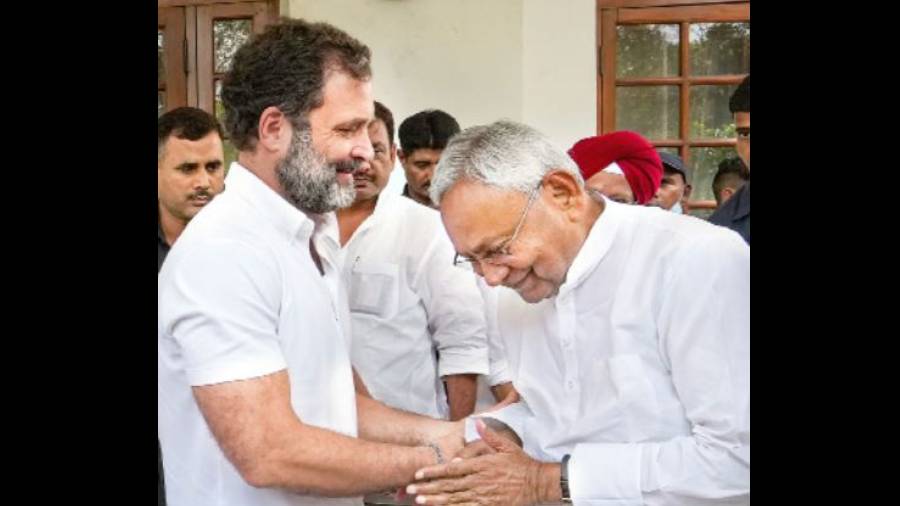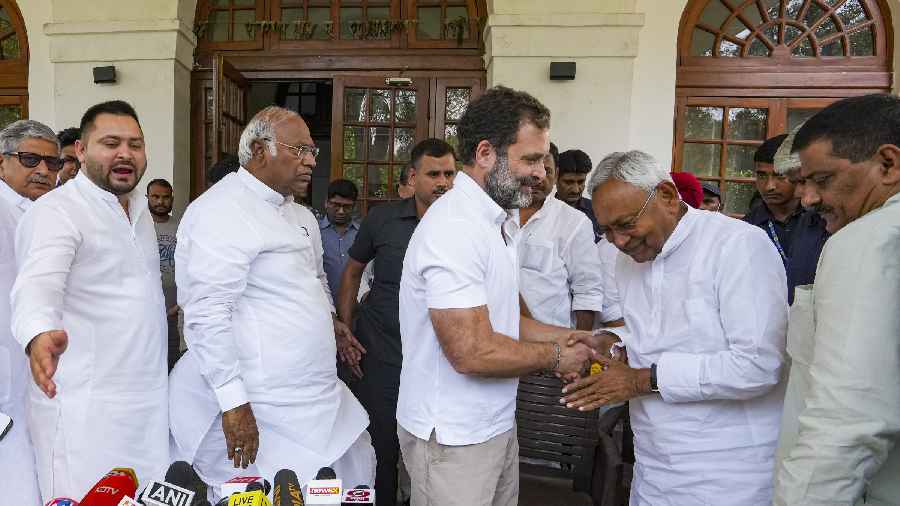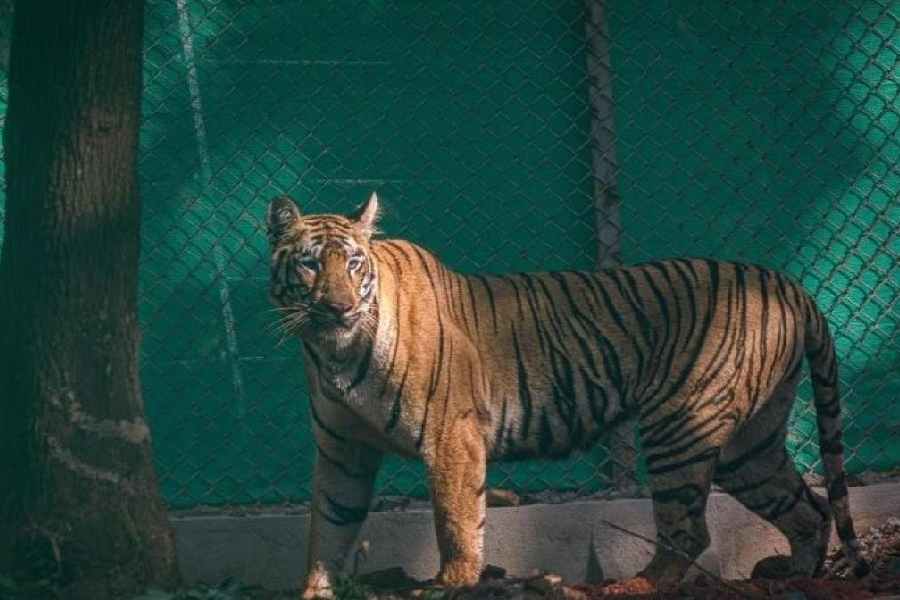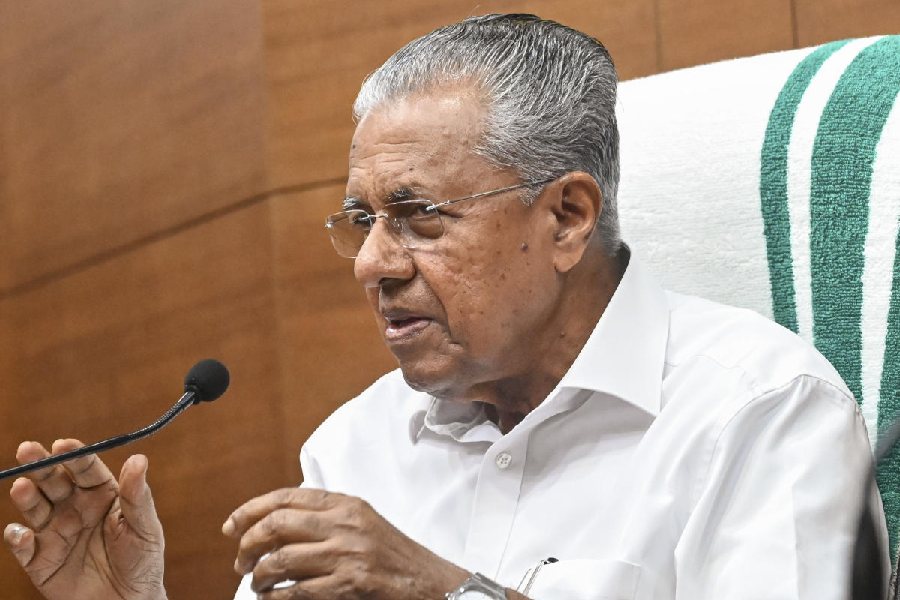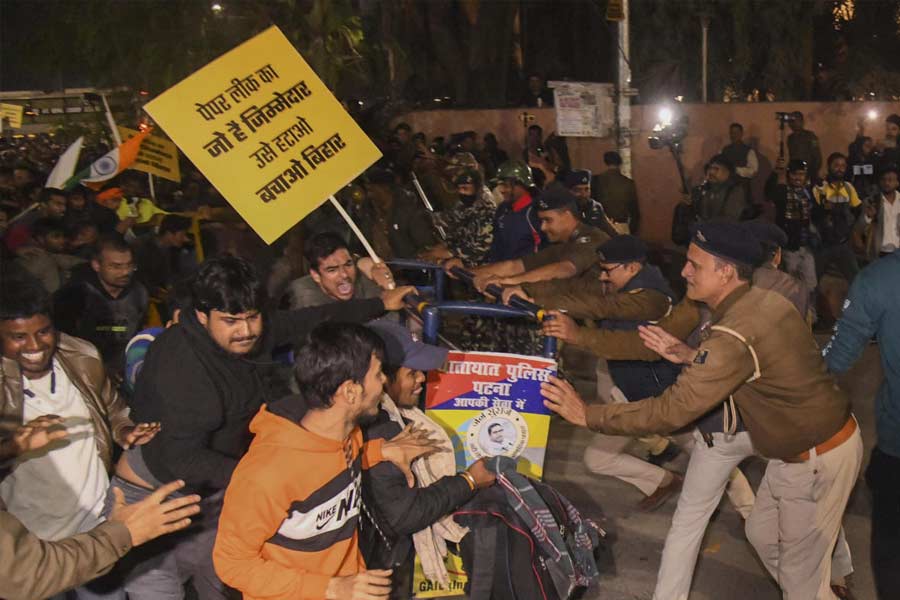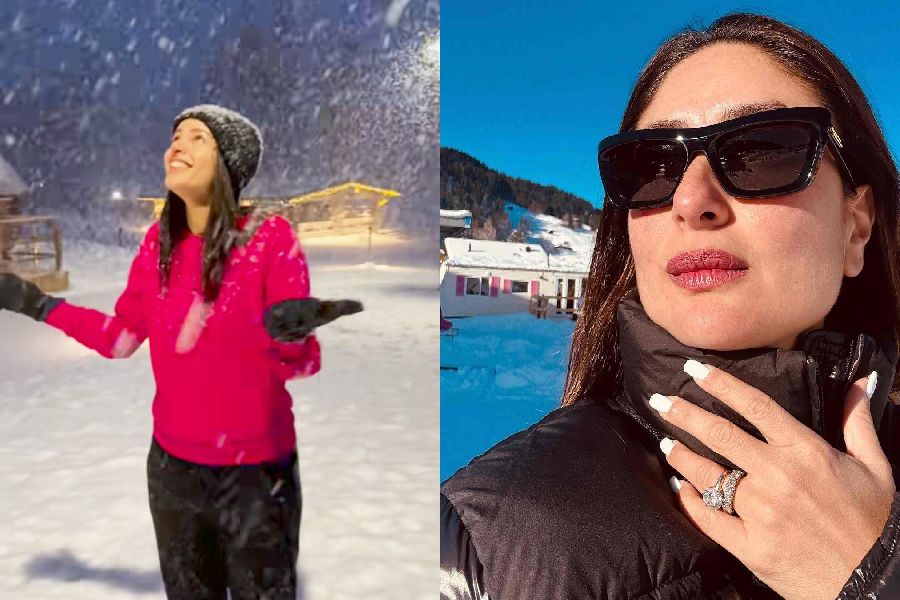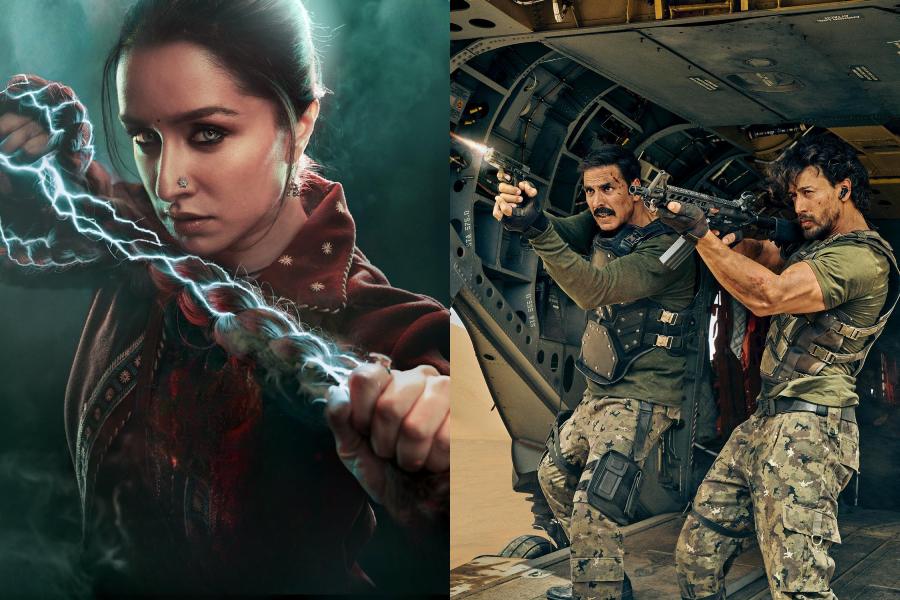Efforts to forge elusive "Opposition unity" appeared to get down to brass tacks on Wednesday with a formal resolve to break barriers of mind and heart to ensure the broadest possible participation and offer a credible national alternative to the Narendra Modi government.
The Congress held what it described as a "historic" meeting with JDU leader Nitish Kumar and the RJD’s Tejashwi Yadav to discuss ways to build Opposition unity, signalling that a larger group would be unveiled in the coming days.
The Congress's Mallikarjun Kharge and Rahul Gandhi held talks with Nitish and Tejashwi on the “finality of the decision” to bring together all the willing parties to fight the 2024 elections. Kharge was categorical: “We had a historic meeting, discussing lots of issues. We decided to unite all the Opposition parties and fight together. We will work together to achieve this objective.”
Kharge has already discussed the unity question with Uddhav Thackeray of the Shiv Sena and M.K. Stalin of the DMK.
Nitish said: “The decision is final; we will try to maximise Opposition unity. We will meet again, a larger group, whoever agrees to come and move forward.”
Rahul, who was present at the meeting at Kharge’s residence, said: “What Khargeji and Nitishji have said about uniting the Opposition… is a historic decision. How many is a question of process. A vision has to be developed, whoever wants to come and join the ideological battle. Institutions are under attack; in fact, the country is under attack.”
Sources said the overriding concern at the meeting was to save democracy, setting aside all contentious issues and mutual differences. While Kharge will talk to parties friendly with the Congress, Nitish has been asked to reach out to parties which nurture a grudge against the Congress. There will be no criteria that would exclude any non-BJP force and every single Opposition party will be approached, it was decided.
This means that apart from the Trinamul Congress, Samajwadi Party, BSP, the Aam Aadmi Party and Chandrashekhar Rao’s BRS, even fence-sitters like the BJD, YSR Congress, TDP and the Akali Dal will be contacted. Asaduddin Owaisi’s AIMIM and Badruddin Ajmal’s AIUDF are also said to be in the scheme of things. The next meeting will be finalised after the consultation process is over.
Rahul, who strongly advocated the broadest-possible Opposition unity at the meeting along with Nitish, suggested a three-day conference of like-minded parties to iron out differences and draw up a road map. The idea struck a chord with Kharge and Tejashwi who felt that frequent meetings in different parts of the country should be held over the coming months.
What is clear is that the dominant view is in favour of setting aside mutual differences, intra-state rivalries, ego issues and personal diffidence and work with a unifocal intent to oust the BJP from power. The Congress appears to have stepped back to allow Nitish to take the lead to ensure that the traditional anti-Congressism doesn’t become a hurdle.
Senior Congress spokesperson Anand Sharma predicted that 2023 would not be a good year for the BJP and “the rest will happen in 2024” as change is inevitable. He insisted that Indian democracy had never faced such challenges since Independence.
“Both the governments that the BJP stole from the Congress — in Karnataka and Madhya Pradesh — will be taken back and we are fully focused on renewal of the mandate in Rajasthan and Chhattisgarh on the strength of welfare schemes,” Sharma said.
He added: “What we are witnessing is a dysfunctional parliamentary democracy; it has been pulverised and paralysed by design, not default. Freedom of expression, debate and asking questions have been the tradition of Parliament. The Modi government is not the first that has faced criticism.
Referring to the allegations of fraud against the Adani group, he said: "Prime Ministers have faced questions, criticism and JPCs (joint parliamentary committees) in the past as well. A JPC was accepted on Bofors and 2G, why not on such an important subject which is linked to the economy and great institutions like the SBI and the LIC?”
Sharma said "we are missing the larger picture because of the smokescreen of government propaganda".
“There is no debate on the economy. Between the age group of 20-24, the unemployment rate is 42 per cent. In construction alone, 95 lakh jobs have been lost in March. In industry, 72 lakh and retail 65 lakh jobs were lost. Isn’t that serious? Inequality is growing. High time we had a law to end monopolies,” he explained.

